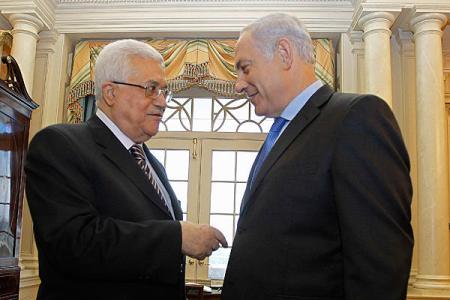It is not easy being Binyamin Netanyahu. For years he has aligned himself with people and positions that are completely counter to the reality which he now faces. Decision-making time on the future of the Israeli-Palestinian relations has finally come.
Those decisions will also shape the future of Israeli-US relations as well as Israeli- European Union relations.
Most important, those decisions will shape the future of the State of Israel and the Jewish people.
All of a sudden the very same people and positions that were part of the political and ideological camp he helped shape are now in the other camp opposing what he must now do.
On Monday this week, Tovah Lazaroff reported in The Jerusalem Post that “Settler leaders on Sunday afternoon held an emergency meeting in Jerusalem against renewed Israeli-Palestinian talks.”
The settler leaders know very well what they are afraid of. They saw one of their past ideological and political leaders abandon them and empty the Gaza Strip of settlers.
For months, people close to the prime minister have been telling me that Netanyahu has been going through a change, a kind of evolution of his positions, quoting the saying that prime minister Sharon often repeated: “What you see from here is not what you see from there.”
What Netanyahu has been seeing is that if he does not take action soon, Israel could easily be on the dangerous slippery slope toward being a binational state. Netanyahu clearly does not want to be the Zionist leader who puts an end to the Zionist enterprise in the Land of Israel.
Now, it seems, Netanyahu is entering the tradition of pragmatic Zionism, which can only mean the partitioning of the Land of Israel into a Jewish state and an Arab state on “the land between the river and the sea” – 22 percent for them, 78 percent for us. That’s the deal, and now Netanyahu is facing the music and waltzing Israel into a new era – the age of real peace-making.
While Netanyahu is negotiating with the Palestinians, his former friends and political allies will be organizing against the inevitable creation of a Palestinian state next to Israel.
Netanyahu will do everything possible to delay the actions of the anti-peace alliance. He knows all too well their ability to disrupt public order, to launch unauthorized building all around the West Bank and to incite against the prime minister.
In the unfolding scenario in which Netanyahu actually moves negotiations with the Palestinians forward, he will find a large number of very vocal MKs from his own party speaking against him and plotting his downfall.
That is just another reason why the negotiations will be conducted under the highest level of secrecy.
As long as the parties want the negotiations to progress and succeed, they will remain secret. Very few people on both sides will actually really know what is transpiring behind the closed doors.
Almost none of the ministers in the Israeli or Palestinian governments will have any real idea what is happening, just as almost none of them really know what was said in the closed rooms between Netanyahu and Kerry and Abbas and Kerry.
There will undoubtedly be many politicians who will speak authoritatively about the negotiations, on the record or anonymously, without having real knowledge about what is really going on.
That’s what politicians do, but because they will not have any real knowledge their statements should be largely ignored.
The first sign that the negotiations are heading towards failure will be when there are real leaks from behind the closed doors. As longs as there is progress, we the public will not know – and neither will the opposition to peace, in Israel and in Palestine.
That is why the opposition will manufacture the news in order to create the call to the flag for mobilizing against their own leaders.
I can already see the marches behind dummy coffins with the words “The Land of Israel” on them with pictures of Netanyahu wearing Arafat’s keffiyeh (or worse).
No, it’s not easy being Binyamin Netanyahu. But then again, he has no experience at being Binyamin Netanyahu the “peace maker.” It’s true that he will lose his old friends and allies, but just imagine all of the new ones he will gain. Suddenly Netanyahu will be welcome and even desired in capitals all over the world.
But that’s not all. Seventy percent of Israelis, a clear majority, want Israel to make peace with its neighbors.
It has not been a high priority issue on the public agenda mainly because they have understood that there was no partnership on the horizon between Netanyahu and Abbas.
Some blamed Netanyahu, most blamed Abbas, but that’s history and potentially behind us now. If the public will believe that there is a real chance for Israeli- Palestinian peace, Netanyahu will find himself with the largest number of Israelis supporting the prime minister since – well maybe since David Ben-Gurion.
This is of course all speculation.
Has Netanyahu changed? How deep is the change? Is he really ready for a genuine Palestinian state to exist next to Israel? Will he withdraw settlements? Will he be willing to share Jerusalem? And if the answers are positive, will he find a Palestinian partner willing to make the concessions that they must make in order for us to arrive at an acceptable deal for both sides? All of these questions need to be answered. At some point in the not-too distant future, we will find out the answers.
Originally Published in the Jerusalem Post.



